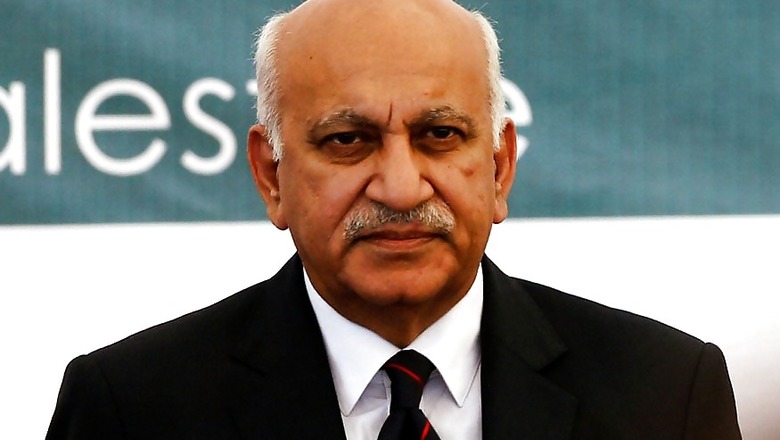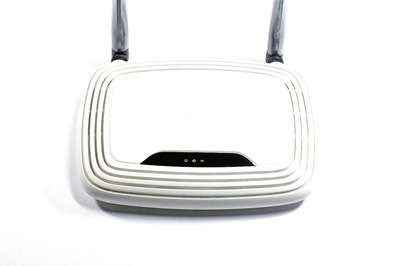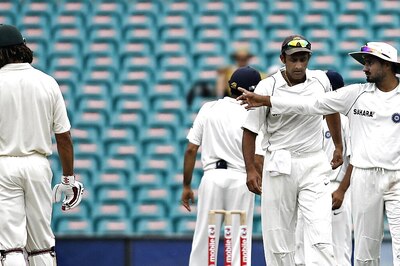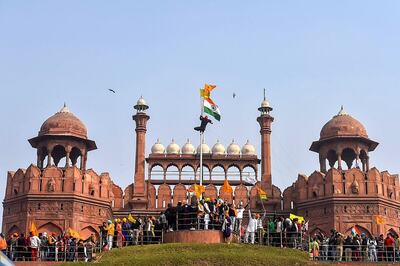
views
New Delhi: A woman journalist alleged in a Delhi court on Tuesday that former Union Minister M J Akbar sexually harassed her in 1997 while she was working in a newspaper being edited by him.
The woman made the submissions in her deposition before the court as a witness appearing in support of scribe Priya Ramani in a criminal defamation complaint filed against her by Akbar.
Akbar, who resigned as Union minister on October 17 last year, filed a private criminal defamation complaint against Ramani after his name cropped up on social media as the #MeToo campaign raged on in India.
Ramani, during the movement last year, accused Akbar of sexual misconduct around 20 years ago. She worked at the Asian Age from January to October in 1994.
Ramani told the court that woman's deposition demolished Akabr's claim that he had an "impeccable reputation".
In her deposition, the witness -- Gazala Wahab -- told the court, "My desk was right outside Akbar's office in a manner that if his door was slightly open he could watch me. Many a times I saw him watching me. If there was a visitor the door was closed and when he was alone the door would be open. Later he started sending me private messages on Asian Age's internal messaging service about my clothes and appearances."
Akbar has denied all the allegations of sexual harassment against the women, who came forward during #MeToo campaign against him.
The woman scribe further told the court that in August-September 1997, Akbar sexually harassed her after calling her in his office.
"I was numbed with fear and shock," she said, adding that he harassed her on a few more occasions.
She said she narrated the incident to Seema Mustafa, who was the bureau chief then.
"She (Mustafa) said she was not surprised about his behaviour and she was unable to help me and it was entirely my fault and I had to decide what to do. I was 26, alone confused, helpless and most importantly petrified. Asian Age had no mechanism to hear complaint of sexual misconduct. There was no internal mechanism, policy...to hear such kind if matters. I was on my own," she told Additional Chief Metropolitan Magistrate Vishal Pahuja.
"Not only was Akbar Editor-in-Chief of Asian Age, he had also been an MP and a former spokesperson of the Indian National Congress. I believed that going public about my complaint or even thinking about it was not an option, thinking about his power and clout... My entire life was in front of me. In the past three years I had fought at home to be able to live and work in Delhi," she added.
In November 1997 Akbar sent Veenu Sanyal, a tarrot card reader, "who told me that he was in love with me and I should stop resisting him", Wahab said.
Sanyal is a witness for Akbar in the case.
Wahab told the court that she was encouraged by the #MeToo movement to share her story.
Ramani told the court that "Wahab's is a completely separate story which is being told to demolish Akbar's claim."
The court will further hear the matter tomorrow, when Wahab is likely to be cross examined by Akbar.
Wahab joined Asian Age newspaper as trainee in 1995 in Delhi office. In early 1997, the office shifter to a new building where her desk was next to Akbar's office, she said.
In early 1998 Wahab left the Asian Age. Ghazala Wahab is currently executive editor of FORCE magazine.
Ramani accused Akbar of sexual misconduct when he was a journalist, a charge denied by him.
Akbar had earlier told the court that the allegations made in an article in the 'Vogue' and the subsequent tweets were defamatory on the face of it as the complainant had deposed them to be false and imaginary and that an "immediate damage" was caused to him due to the "false" allegations by Ramani.
Ramani had earlier told the court that her "disclosure" of alleged sexual harassment by Akbar has come at "a great personal cost" and she had "nothing to gain" from it.
She had said her move would empower women to speak up and make them understand their rights at workplace.
Several women came out with accounts of the alleged sexual harassment by him while they were working as journalists under Akbar.
He has termed the allegations "false, fabricated and deeply distressing" and said he was taking appropriate legal action against them.




















Comments
0 comment